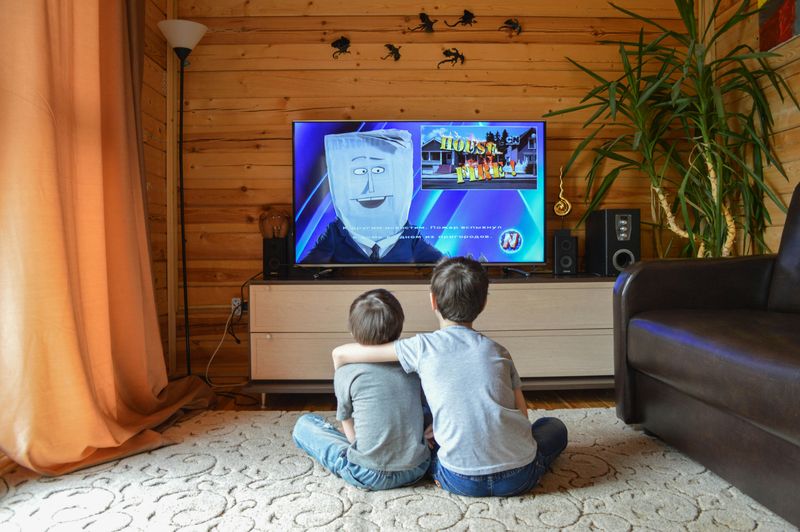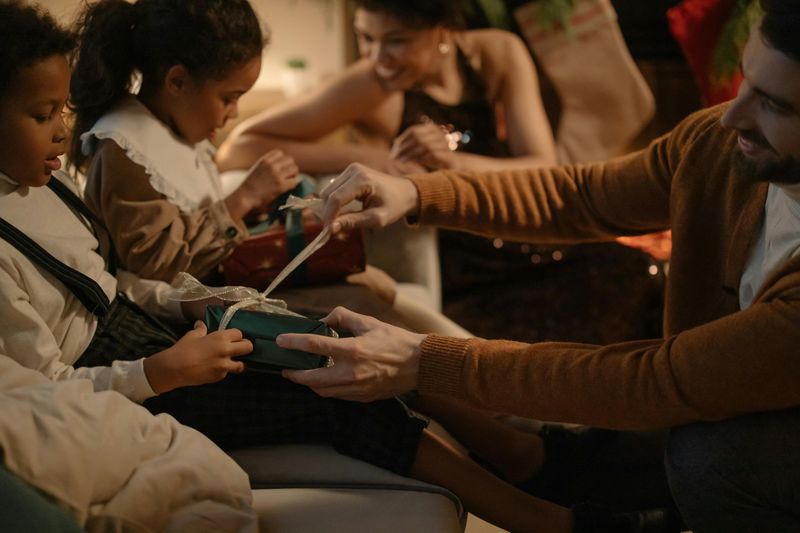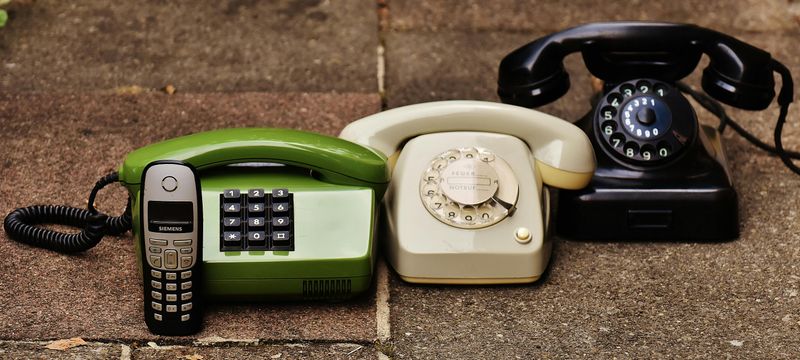20 Strange Rules From The 70s That Kids Today Would Never Understand
Growing up in the 1970s meant following rules that seem completely bizarre by today’s standards.
Kids back then lived in a world without smartphones, internet, or helicopter parents hovering over every move.
Life was simpler, stricter, and filled with expectations that modern children would find absolutely mind-boggling.
1. Be Home Before the Streetlights Come On
When dusk approached, every kid knew the universal signal: flickering streetlights meant playtime was over. Parents didn’t track their children with GPS devices or constant phone calls back then.
You simply wandered the neighborhood freely until those lights buzzed to life. Missing this curfew meant serious trouble, possibly grounding or losing outdoor privileges for days.
2. No Phone Calls After 9 P.M.
Calling someone’s house after nine o’clock was considered incredibly rude and disrespectful. Families valued their evening routines and quiet time without interruptions from chatty teenagers.
If your phone rang late at night, it usually meant an emergency or bad news. Kids learned to respect boundaries and plan their social conversations during appropriate hours. Texting wasn’t an option!
3. Only One Hour of TV a Day
Television time was rationed like precious gold in many households. Parents worried that too much screen time would rot your brain or make you lazy.
You had to choose wisely between cartoons, after-school specials, or prime-time shows. With only a handful of channels available, decisions were agonizing but taught prioritization skills.
4. Finish Everything on Your Plate
Leaving food uneaten was practically a crime in most households. Parents invoked starving children in far-off countries to guilt you into cleaning your plate completely.
Wasting food seemed disrespectful when families worked hard to put meals on the table. Whether you liked liver and onions or not, you ate what was served.
5. No Talking Back to Adults
Challenging or questioning an adult’s authority was absolutely forbidden. Children were expected to listen, obey, and accept decisions without argument or explanation.
Even if an adult was clearly wrong, you kept your mouth shut and nodded respectfully. Sass or sarcasm earned swift punishment, often physical.
6. No Shoes on the Furniture
Putting your feet on the couch or coffee table was a cardinal sin. Furniture was expensive and meant to be kept pristine for as long as possible.
Many families covered their good couches with plastic slipcovers to prevent wear and tear. Your dirty sneakers had no business touching upholstery that cost serious money.
7. Ask Permission Before Leaving the Table
Mealtime was sacred family time, and you couldn’t just wander off when you felt like it. Asking politely to be excused showed manners and respect for everyone gathered.
Bolting from the table mid-meal was considered incredibly rude. Even if you finished eating first, you waited until others were done or asked permission properly.
8. No Calling Friends Long-Distance
Long-distance phone calls cost a fortune, charged by the minute. Calling friends or relatives in other area codes was reserved for special occasions or emergencies only.
Parents scrutinized phone bills carefully and would explode if they found unauthorized long-distance charges. You learned geography quickly by memorizing which area codes were off-limits.
Local calls only, kiddo!
9. Don’t Touch the Thermostat
Adjusting the thermostat without permission was like tampering with nuclear codes. Heating and cooling bills were expensive, and parents guarded temperature settings fiercely.
If you were cold, you put on a sweater. If you were hot, you opened a window or dealt with it.
Energy conservation meant wearing layers indoors year-round.
10. Always Rewind VHS Tapes Before Returning Them
Returning a tape without rewinding it first was the height of inconsideration. Video rental stores even charged late fees for unrewound tapes because it inconvenienced the next customer.
“Be Kind, Rewind” became a cultural motto. Taking those extra minutes to rewind showed you cared about others and followed community standards. Common courtesy mattered greatly!
11. Share the Same Bathwater with Your Siblings
Water conservation and efficiency meant siblings often bathed together or reused the same bathwater. Filling the tub multiple times seemed wasteful and expensive to practical parents.
Older kids bathed first, then younger ones hopped in the same water. It sounds gross now, but back then it was perfectly normal household practice.
12. No Snacks Before Dinner
Raiding the kitchen before mealtime was strictly prohibited. Parents wanted you hungry enough to eat everything served at dinner without complaints.
Snacking would “ruin your appetite,” the ultimate parental concern. You learned to endure hunger pangs and wait patiently for designated mealtimes.
13. No Elbows on the Table
Proper posture during meals was non-negotiable. Resting your elbows on the table showed poor breeding and laziness in the eyes of etiquette-conscious parents.
You sat up straight, kept hands in your lap when not eating, and demonstrated impeccable table manners. Slouching or leaning earned immediate correction and sometimes a gentle smack.
14. Do Your Chores Before Cartoons
Saturday morning cartoons were the highlight of any kid’s week, but you earned that privilege. Beds needed making, rooms needed cleaning, and trash needed taking out first.
Parents used cartoons as leverage to ensure household responsibilities got completed. Responsibility came before entertainment, teaching valuable life lessons about priorities.
15. No Opening Gifts Until Everyone’s Watching
Tearing into presents the moment you received them was incredibly rude. Gift-opening was a communal event where everyone watched, appreciated, and shared in the excitement together.
You opened presents one at a time, thanked the giver properly, and showed genuine appreciation. Rushing through gifts showed greed and lack of gratitude.
16. Wait Your Turn on the Rotary Phone
With only one phone line per household, phone usage required coordination and patience. If someone was talking, you waited your turn without hovering or complaining.
Important calls took priority over chatty conversations with friends. Families developed complex phone-sharing systems and time limits to keep things fair.
17. No Eating in the Car
Cars were investments that needed protecting from spills, crumbs, and sticky fingers. Eating during road trips was reserved for designated rest stops only.
Parents kept their vehicles spotless and refused to let messy snacks ruin upholstery. You learned to wait until reaching your destination before satisfying hunger.
18. Always Write Thank-You Notes by Hand
Receiving a gift meant writing a proper thank-you note promptly. Typed notes or phone calls didn’t count; only handwritten messages showed genuine appreciation and effort.
Parents supervised this process, ensuring notes were neat, sincere, and mailed within days. Gratitude required time, thought, and legible penmanship.
19. Sit Still During Family Photos
Photography was expensive and time-consuming, so you didn’t waste film with silly faces or fidgeting. Family photos required serious expressions and perfect posture.
You sat still, smiled naturally, and cooperated without complaint. Messing up a shot meant wasting money and earning parental frustration.
20. Never Interrupt Adult Conversations
When grown-ups were talking, children remained silent and invisible. Interrupting was disrespectful and resulted in immediate scolding or worse.
You learned patience by waiting quietly until adults finished their discussions. Even urgent matters required polite waiting unless it was a genuine emergency. Silence shows respect always!


























